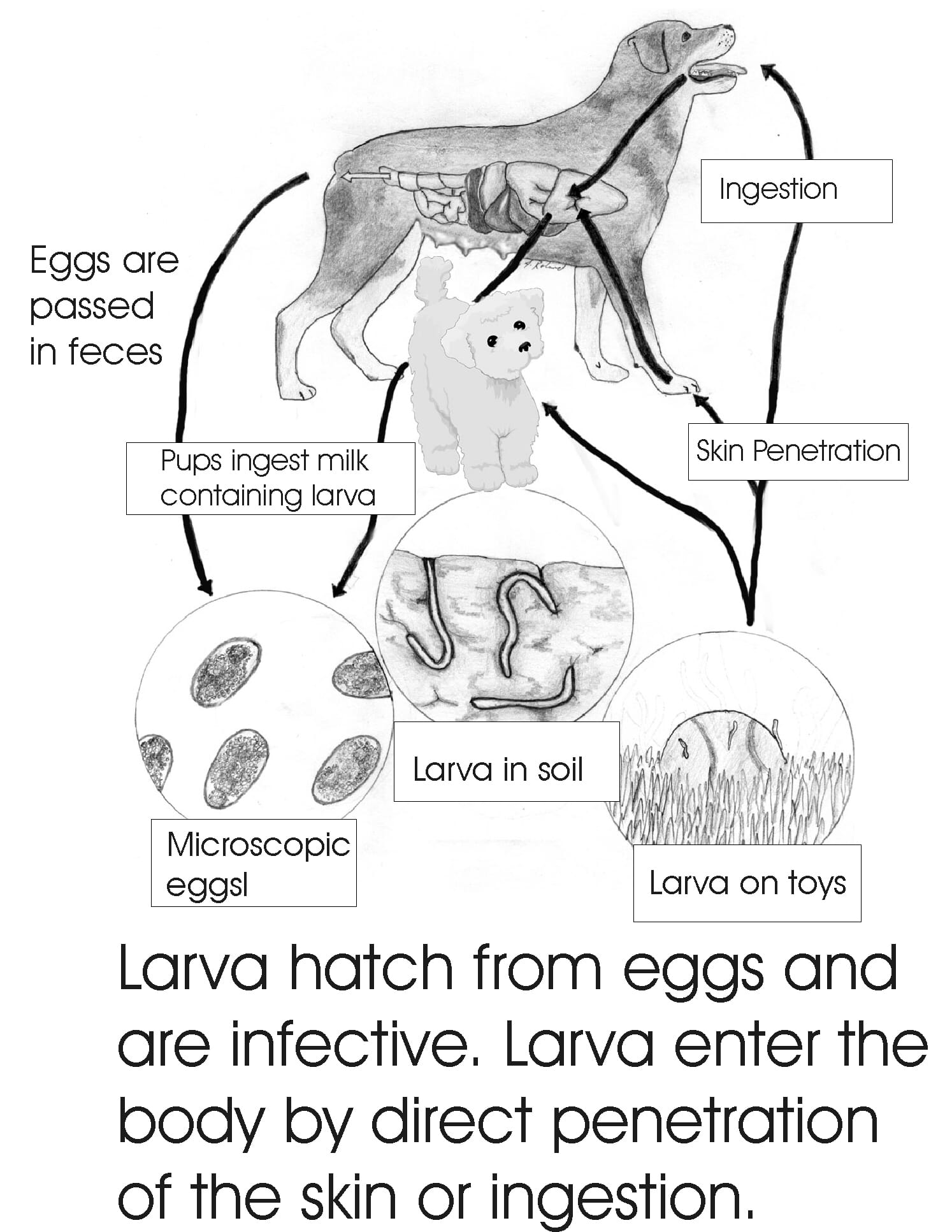The bond between humans and their dogs is profound, with many considering their canine companions as integral members of the family. This close relationship, however, can sometimes lead to the unintended exchange of parasites. A common question that arises among pet owners is: “Can humans get worms from dogs?” This concern is valid and deserves a thorough examination to ensure the health and well-being of both pets and their human counterparts.
How Worm Transmission Occurs
Parasites, including various types of worms, can transfer from animals to humans through several pathways. Understanding these transmission routes is the first critical step in effective prevention.
Direct Contact with Infected Soil or Feces
One of the most prevalent methods of worm transmission from dogs to humans is through direct contact with contaminated soil or feces. When a dog is infected with intestinal worms, their feces can contain worm eggs or larvae. If a person, particularly a child, comes into contact with this contaminated matter and subsequently touches their mouth, eyes, or food, the infection can be transmitted.
Ingesting Contaminated Food or Water
Worm eggs or larvae can contaminate water sources or food that has been exposed to infected soil or feces. The ingestion of such contaminated food or water can lead to parasitic infections in humans.
Common Worms Transmitted from Dogs to Humans
Several types of intestinal worms that infect dogs can also be transmitted to humans, each presenting unique symptoms and potential health implications. Awareness of these common parasites is vital for both prevention and early detection.
Roundworms (Toxocara canis)
Roundworms are among the most frequently transmitted worms from dogs to humans. In humans, the larvae of Toxocara canis can cause a condition known as visceral larva migrans (VLM). This occurs when the larvae migrate through the human body, potentially damaging organs such as the liver, lungs, and eyes, and can lead to serious health complications if left untreated.
Hookworms (Ancylostoma caninum and Uncinaria stenocephala)
Hookworms are another significant concern for parasite transmission. When human skin comes into contact with soil contaminated with dog hookworm larvae, it can lead to a condition called cutaneous larva migrans (CLM). CLM is characterized by intensely itchy, red, raised tracks on the skin as the larvae burrow and migrate. While typically superficial, hookworm infections can cause anemia and other issues if significant numbers of worms establish in the intestines.
Tapeworms (Echinococcus spp.)
While less common than roundworm or hookworm transmission, certain types of tapeworms can be passed from dogs to humans. The most concerning is Echinococcus granulosus, which humans can contract by accidentally ingesting tapeworm eggs, often via contaminated hands or food. This can lead to the development of hydatid cysts in organs like the liver and lungs, a serious condition requiring medical intervention. Transmission usually involves the accidental ingestion of a flea infected with tapeworm larvae, such as in the case of Dipylidium caninum.
Prevention Strategies for Pet Owners
Safeguarding both your family and your pets from worm transmission requires a multi-faceted approach, integrating diligent personal hygiene, consistent pet healthcare, and effective environmental management. Implementing these actionable tips can significantly reduce the risk of parasitic infections.
Regular Veterinary Visits and Deworming Protocols
Regular veterinary check-ups for your dog are paramount. Veterinarians can assess your pet’s health, perform fecal tests to detect parasitic infections, and recommend appropriate over the counter parasite medication for dogs or prescription deworming treatments. Adhering to a veterinarian-approved deworming schedule is crucial for minimizing the parasite load in your pet.
Emphasizing Personal Hygiene Practices
Consistent handwashing is a cornerstone of preventing parasite transmission. Ensure thorough hand washing, especially after interacting with your dog, handling their feces, gardening, or before preparing and consuming food. Educating children about the importance of hand hygiene after playing with pets or outdoors is particularly critical, as they are more prone to accidental ingestion of parasite eggs.
Maintaining Environmental Cleanliness
Prompt and proper disposal of pet waste is essential to prevent the spread of worm eggs. Regularly clean your pet’s living areas, including bedding and toys. In yards where dogs defecate, regular cleanup can help reduce environmental contamination. For those concerned about different types of worms in dog poop with pictures, understanding what to look for can aid in early detection.
When to Seek Veterinary and Medical Care
If you suspect your dog may have worms, seeking prompt veterinary attention is vital. Common signs of worm infestation in dogs include visible worms or segments in their feces (leading owners to ask, “i found worms in my puppies poop“), unexplained weight loss, a distended or bloated abdomen, changes in appetite, vomiting, diarrhea, or a dull coat.
For humans, if you experience symptoms such as abdominal pain, nausea, unexplained weight loss, fatigue, or skin irritation suggestive of a parasitic infection, it is important to consult a healthcare professional. Questions like “do i have worms from my dog” should be addressed by medical experts. Protecting the health of your entire household begins with proactively managing the health of your pets.
References
- Centers for Disease Control and Prevention. (2023). Parasites – Toxocariasis (also known as Roundworm Infection).
- American Veterinary Medical Association. (n.d.). Intestinal Parasites.

